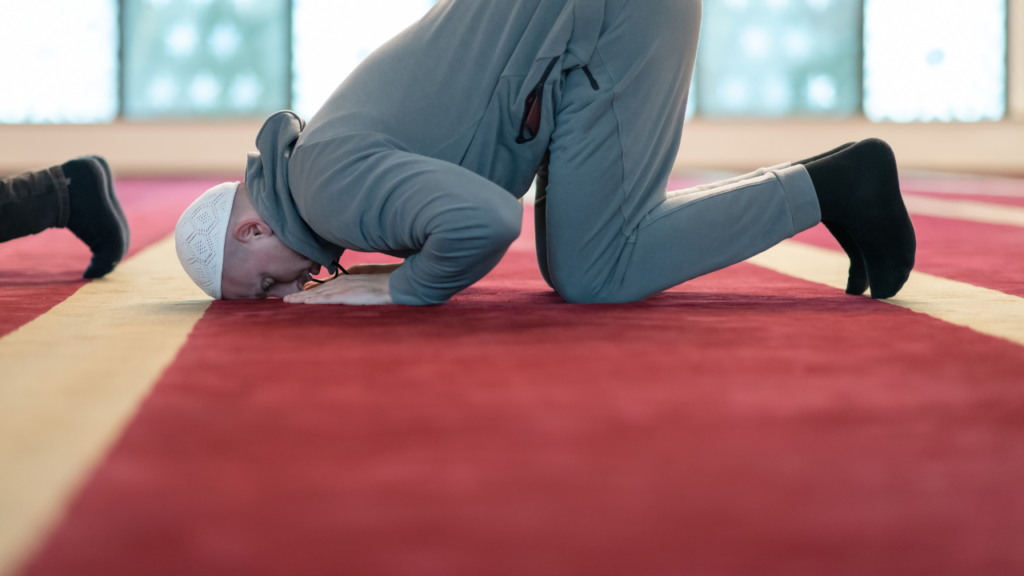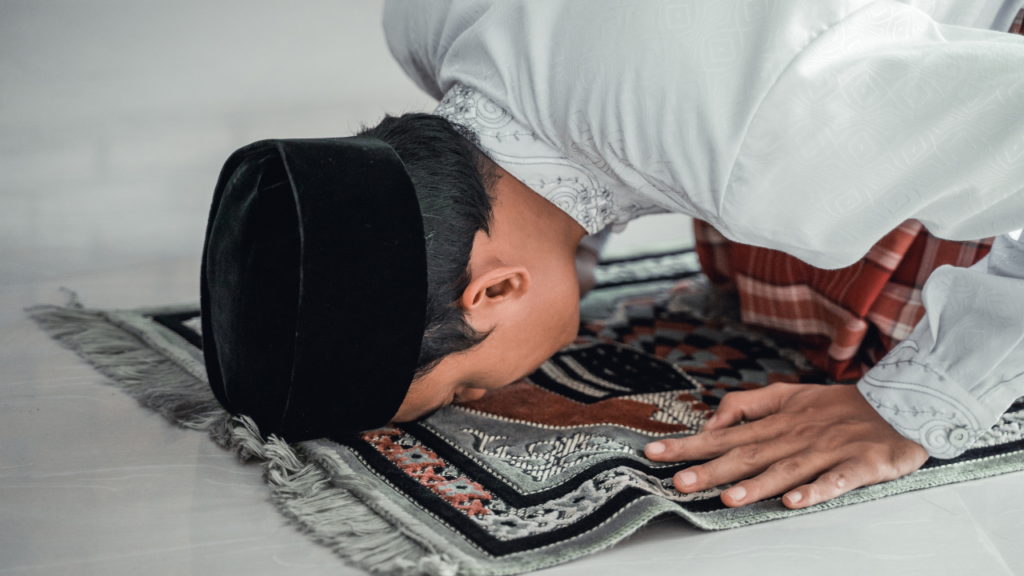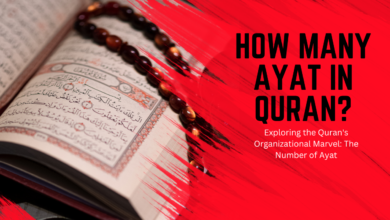
How Many Sajda In Quran?
There are 14 Sajda verses in the Quran where it is recommended to perform a prostration of gratitude (Sujood as-Sahw).

Introduction
The Quran, the holy scripture of Islam, is a comprehensive guide for Muslims, offering guidance on matters of faith, morality, and daily life. One of the unique features of the Quran is the presence of Sajda (prostration) verses, which are special moments in the text when Muslims are encouraged to bow down and prostrate in worship. These verses are often associated with profound spiritual significance and are a central part of Islamic prayer. In this article, we will explore the concept of Sajda in the Quran, including how many Sajda verses there are and their importance in Islam.
The Concept of Sajda in the Quran
Sajda in Arabic means “prostration,” and it is an act of complete submission and devotion to Allah. In Islam, prostration is a fundamental element of worship, and it is performed as a physical expression of humility and reverence before God. Sajda serves as a powerful reminder of the believer’s utter dependence on Allah and their willingness to obey His guidance.
There are a total of 14 Sajda verses in the Quran, where Muslims are encouraged to perform the prostration during their recitation. These Sajda verses are found throughout the Quran and hold special significance due to their thematic content and the profound spiritual impact they carry.
The 14 Sajda Verses in the Quran
- Surah Al-A’raf (7:206)
- Surah Ar-Ra’d (13:15)
- Surah An-Nahl (16:26)
- Surah Al-Isra (17:109)
- Surah Maryam (19:58)
- Surah Al-Hajj (22:18)
- Surah Al-Furqan (25:60)
- Surah An-Naml (27:26)
- Surah As-Sajda (32:15)
- Surah Insaan (76:26)
- Surah Al-Inshiqaq (84:21)
- Surah Al-Alaq (96:19)
- Surah Al-Qalam (68:26)
- Surah An-Najm (53:62)
Also Check
The Importance of Sajda Verses
The Sajda verses are scattered throughout the Quran, and each one holds its own message and significance. When a believer encounters a Sajda verse during their recitation, it is customary to pause and physically perform the prostration. This act of obedience and devotion is a powerful spiritual experience, reinforcing the believer’s connection with Allah.
The Sajda verses cover a wide range of topics and themes, emphasizing key aspects of faith, including the oneness of Allah, the Day of Judgment, and the importance of worship. Each Sajda verse calls for reflection and self-examination, prompting Muslims to ponder the profound truths contained within the Quran.
Sajda in Daily Prayer
While Sajda verses can be found throughout the Quran, it’s important to note that Muslims perform prostration not only during their recitation of the Quran but also as a part of their daily prayers. In each unit of the Islamic prayer (Salat), there are specific positions, one of which is the prostration (Sujood), and Muslims perform Sajda in each unit, emphasizing their submission to Allah.
Conclusion
The Quran is not merely a text to be recited but a source of profound spiritual guidance for Muslims. The presence of Sajda verses in the Quran adds a unique dimension to the act of recitation, emphasizing the importance of submission and devotion to Allah. There are 14 Sajda verses scattered throughout the Quran, each with its own message and significance, serving as a powerful reminder of the believer’s dependence on God and their commitment to following His guidance. Sajda is not just a physical act; it is a spiritual experience that connects the believer with the divine, making it a central part of Islamic worship and devotion.

(FAQs) about the number of Sajda (prostration) verses in the Quran:
How many Sajda verses are there in the Quran?
There are 14 Sajda verses in the Quran where it is recommended to perform a prostration of gratitude (Sujood as-Sahw).
What is the purpose of the Sajda verses in the Quran?
The purpose of these verses is to emphasize the importance of the message and to inspire a deep sense of humility and gratitude in the reader or reciter.
Are there specific rules for performing Sujood as-Sahw during recitation of these verses?
There are no specific rules mentioned in the Quran regarding the method of performing Sujood as-Sahw during the recitation of these verses. Different Islamic traditions and schools of thought may have their own guidelines.
Which chapters or surahs in the Quran contain Sajda verses?
The Sajda verses are found in several chapters (surahs) of the Quran, including Al-A’raf (7:206), Ar-Ra’d (13:15), An-Nahl (16:26), Bani Isra’il (17:109), Maryam (19:58), Al-Hajj (22:18), Al-Furqan (25:60), An-Naml (27:26), As-Sajda (32:15), In-Fussilat (41:38), An-Najm (53:62), Al-Inshiqaq (84:21), Al-Alaq (96:19), and Al-‘Alaq (96:19).
Is Sujood as-Sahw mandatory for all Muslims when reciting these verses?
Sujood as-Sahw is a recommended act of worship, but it is not considered obligatory by all Islamic scholars. The practice may vary among different Islamic traditions and schools of thought.
Can women perform Sujood as-Sahw during their menstrual period or postpartum bleeding?
Generally, women are not required to perform Sujood as-Sahw during their menstrual period or postpartum bleeding, as these conditions temporarily exempt them from certain acts of worship.
How can one learn to correctly perform Sujood as-Sahw when reciting Sajda verses?
Learning from knowledgeable scholars, attending Islamic classes, or seeking guidance from reputable sources within one’s own Islamic tradition is recommended to learn the correct way to perform Sujood as-Sahw.
Can Sujood as-Sahw be performed while praying outside of recitation of the Quran?
Sujood as-Sahw is primarily associated with the recitation of the Quran, but there are other occasions where it may be recommended, such as during mistakes made in the obligatory prayers. It is best to consult with a knowledgeable scholar or religious authority for specific guidance.
Is there a specific supplication or du’a to be recited during Sujood as-Sahw?
There is no specific supplication mentioned in the Quran for Sujood as-Sahw. Muslims may use the opportunity to make personal supplications or express gratitude to Allah.
Is it acceptable to delay the Sujood as-Sahw until the end of the recitation or prayer?
The timing for performing Sujood as-Sahw may vary among Islamic traditions. Some may recommend doing it immediately after the verse, while others allow it to be done at the end of the prayer or recitation. It’s best to follow the guidelines of your specific tradition or consult a knowledgeable scholar.

